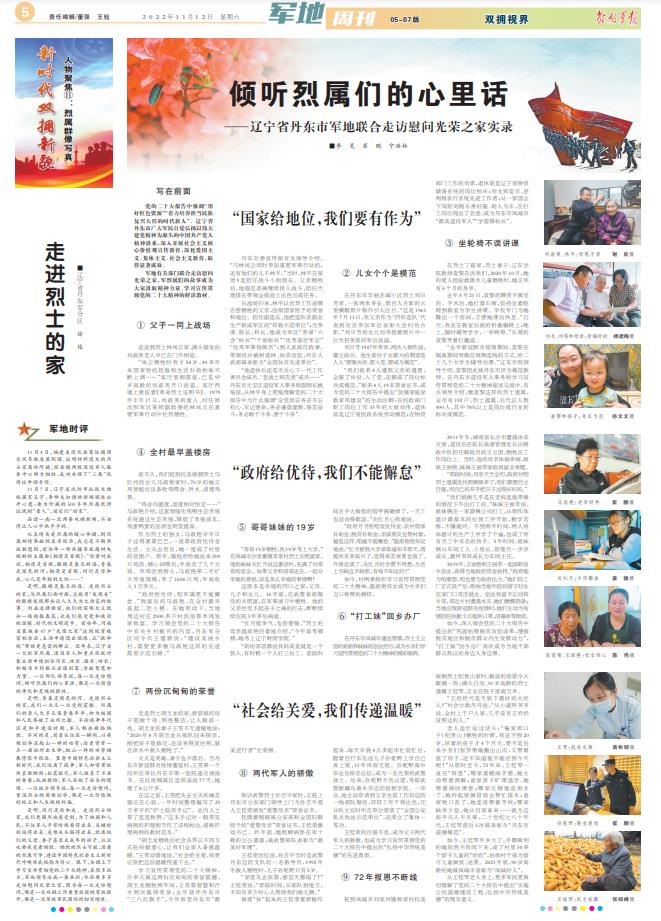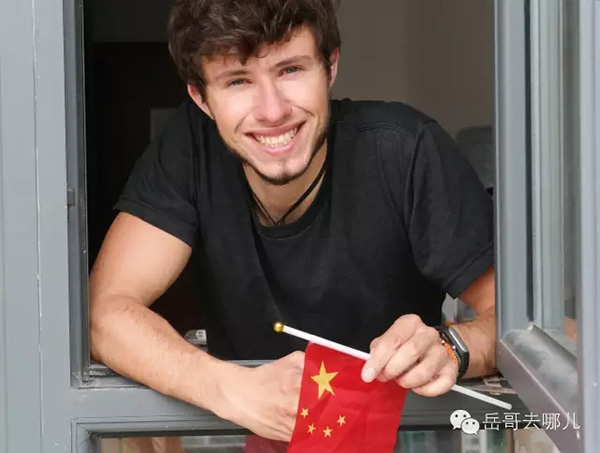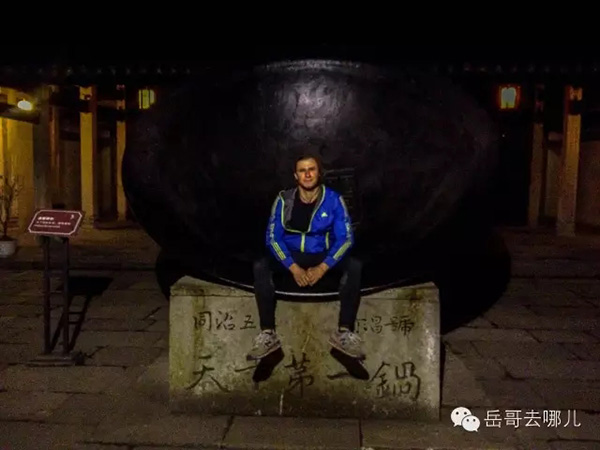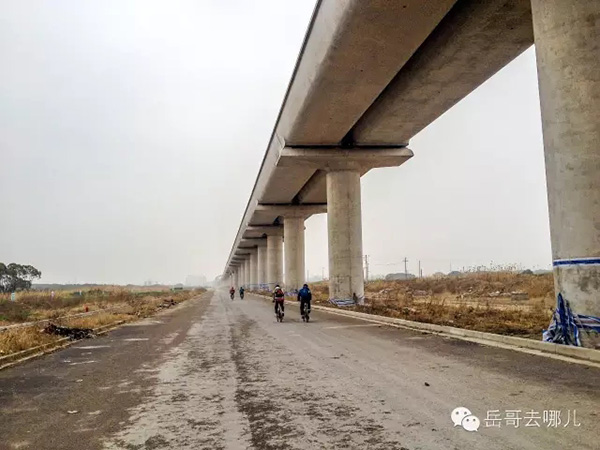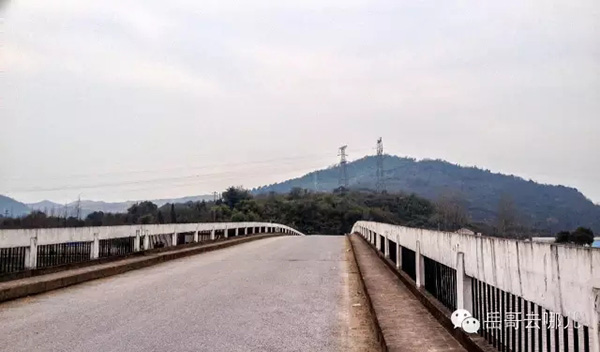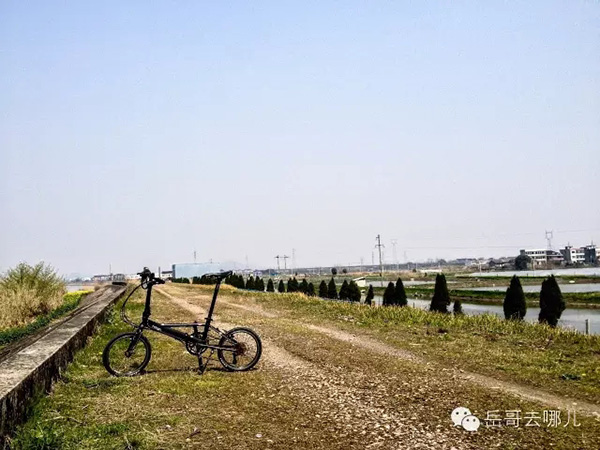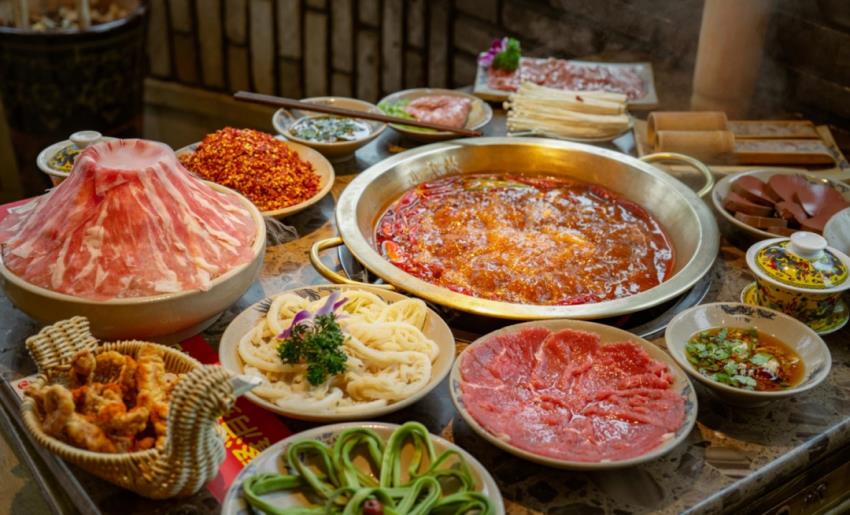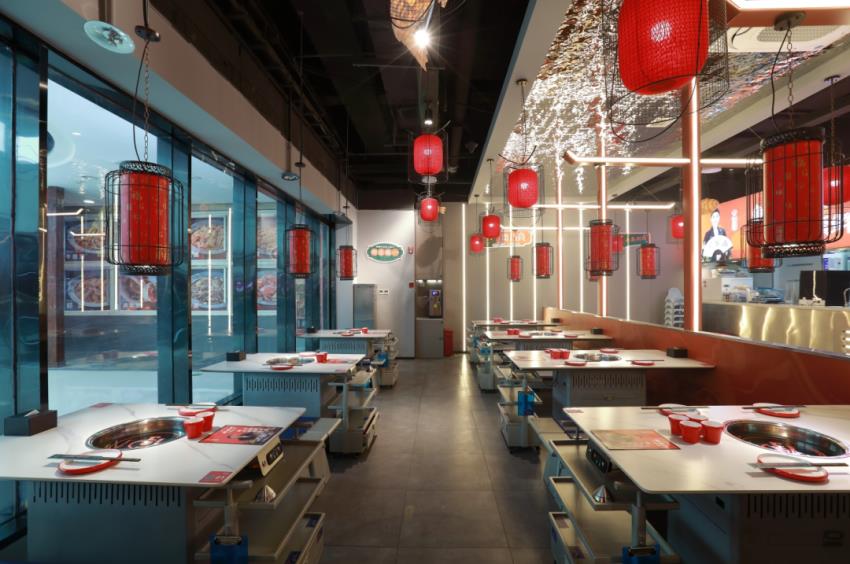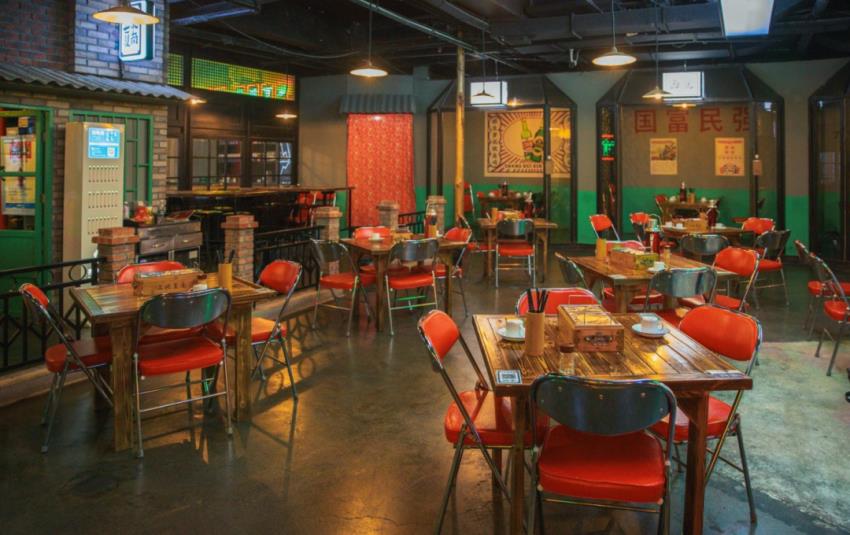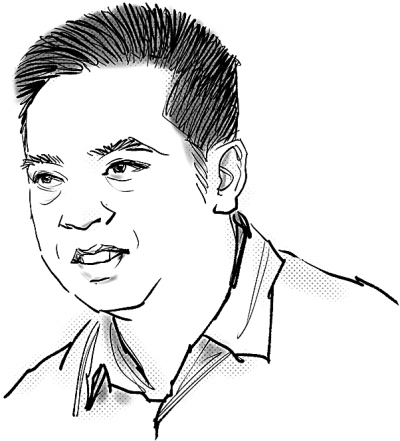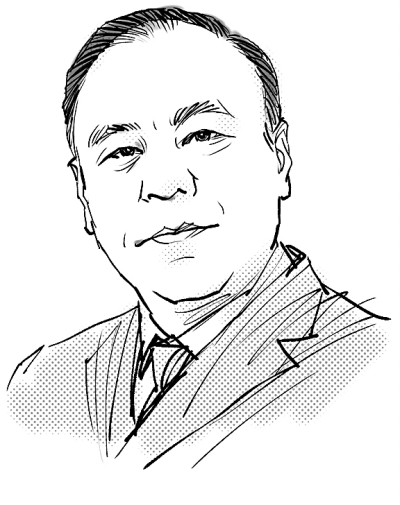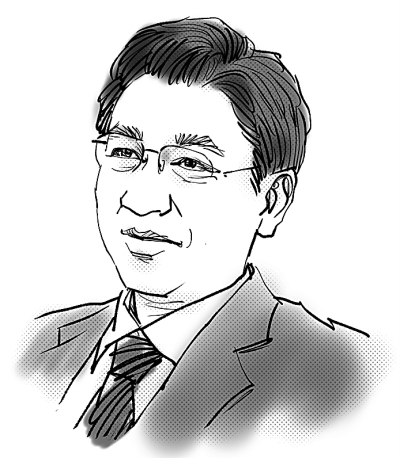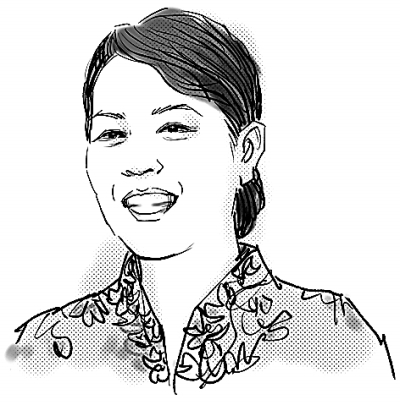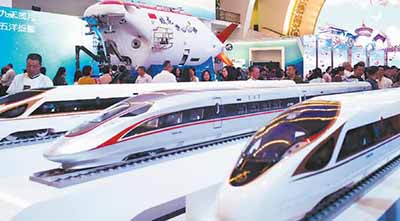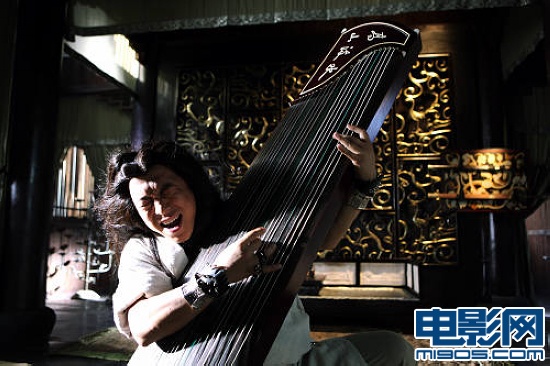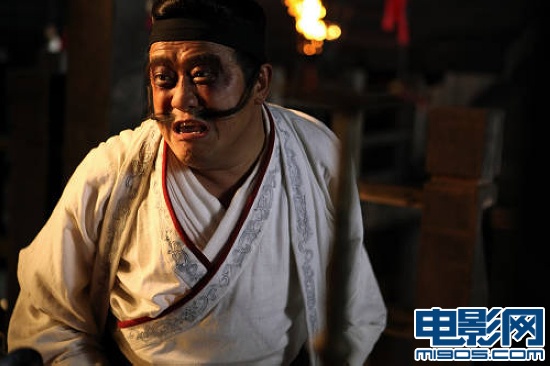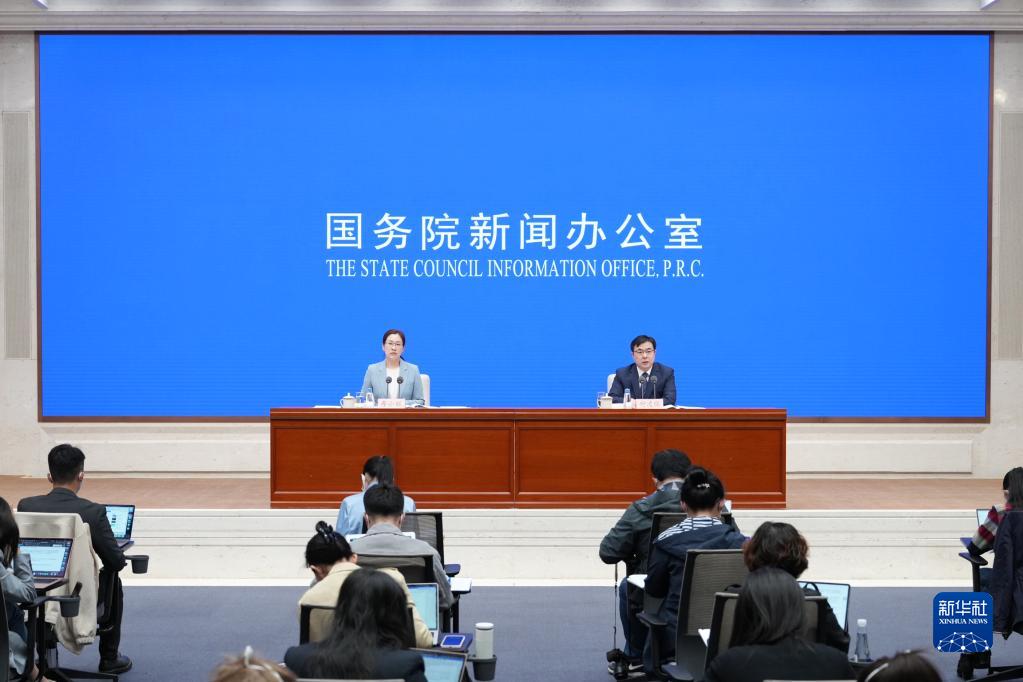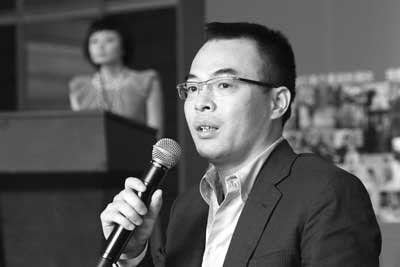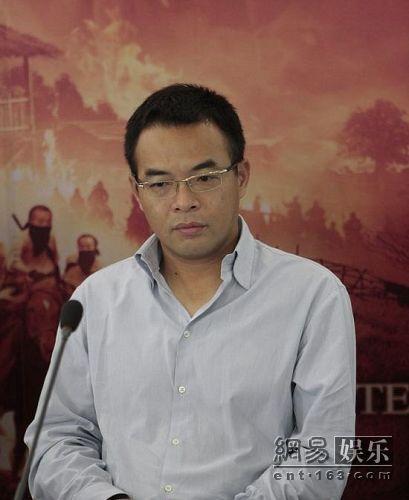Listening to the hearts of the martyrs, Dandong City, Liaoning Province jointly visited the glorious home.
Write in front
The Party’s Report to the 20th CPC National Congress emphasized "making good use of red resources" and "focusing on cultivating new people of the times who are responsible for national rejuvenation". The broad masses of soldiers and civilians in Dandong City, Liaoning Province consciously carried forward the spiritual pedigree of the Communist Party of China (CPC) people, which originated from the great spirit of party building, carried out in-depth publicity and education on socialist core values, and deepened education on patriotism, collectivism and socialism, and achieved remarkable results.
The relevant departments of the military and local governments jointly visited the glorious home, and the stories of the military martyrs became fresh teaching materials for everyone to learn spiritual strength and learn to publicize and implement the spirit of the 20 th Party Congress.
Listen to the hearts of martyrs
-A Record of the Joint Military-civilian Visit to the Glorious Home in Dandong City, Liaoning Province
■ Li Wei Cui Peng Ning Honglin
"The country gives status, and we have to do something."
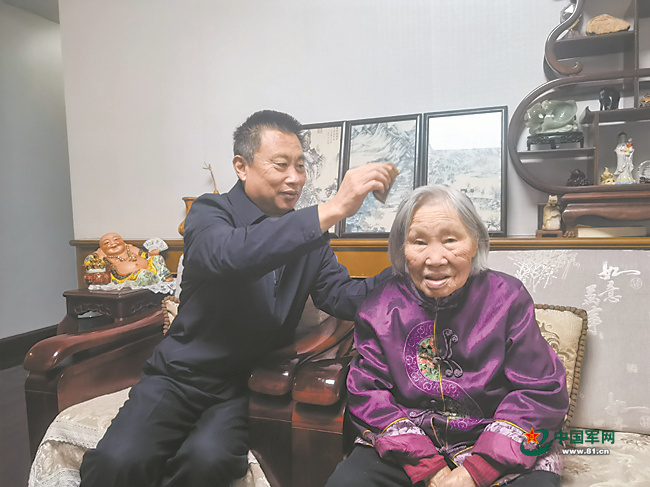
Liu Shuying and Lin Ping: Mothers are kind and filial. Xie Liang
(1) father and son together on the battlefield.
Haven’t arrived at the martyr Fengyun Lin’s home, the old man with silver hair in Liu Shuying was already greeted at the door.
"I was only 54 years old when Fengyun died, and the standard of pension and living allowance given by the state has been raised continuously for more than 40 years …" Liu Shuying, who just sat down in the living room, was 97 years old. The Certificate of Revolutionary Martyrs is hung on the west wall of the living room. On February 17th, 1979, Liu Shuying’s lover, Fengyun Lin, then the former deputy political commissar of a division in shenyang military area command, died heroically in an important military action.
The relevant leaders of the Propaganda Department of Dandong Municipal Committee introduced that "Fengyun Lin and their son Lin Ping also participated in important military operations at the same time." At that time, Lin Ping served as the leader of the combat team in the 9 th Company of a certain regiment. After his father died, he endured grief and continued to fight, serving as the acting platoon leader to lead the whole platoon of soldiers to complete the task well.
After returning from the battlefield, Lin Ping comforted his sacrificed father with excellent work performance and rewarded the honor and status given by the country. As the deputy company commander, he made the company’s agricultural and sideline production a "model demonstration unit" in the military region; As a staff officer, section chief and section chief, he became a model of the Sixth Meeting of Staff Officers, a model of cadres, an excellent grass-roots officer and an excellent military commander in the military region. He served as the political commissar of the People’s Armed Forces Department and led the militia to plant trees and help the poor. The People’s Armed Forces Department was commended as the "National Advanced Unit for Poverty Alleviation".
"After his retirement, he is still a member of the Municipal Committee for Caring for the Next Generation and a member of the Veterans’ Report Group …" Vagrancy, deputy director of the Retired Military Affairs Bureau of yuanbao district, Dandong City, said that from Lin Ping, he can better understand why the party’s Report to the 20th CPC National Congress emphasized that "all party comrades must be Do not forget your initiative mind, remember their mission, be modest and prudent, work hard, and be brave and good at fighting".
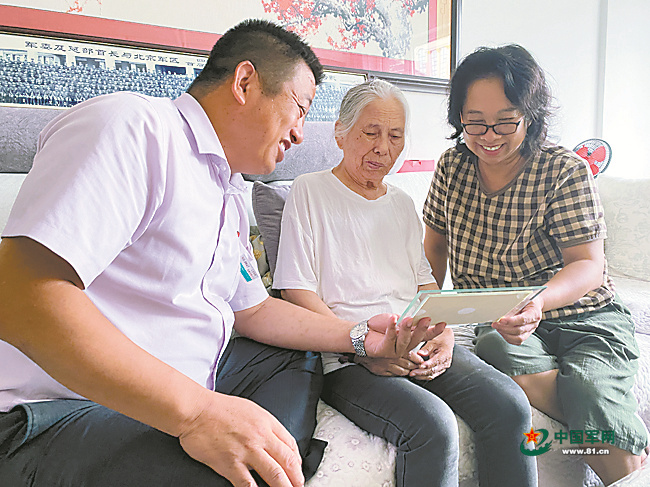
Liu Ge, Liu Wei and Mother: Happy Moment. Photo by Yang Jianmei
(2) children are all models.
In the home of Liu Rifang, a martyr in the gorgeous city community of Dandong City, a large banner photo of more than two meters long and hundreds of people taking a group photo is particularly eye-catching. "This is a photo taken on July 11, 1963 when my father went to Beijing as a representative of the’ Four Good Companies’ to attend the commendation meeting of the military region." Liu Rifang’s daughter Liu Wei pointed to a handsome young officer in the photo.
Liu Rifang joined the army in 1947, fought in the DPRK twice, and repeatedly made meritorious military service. His greatest expectation for his children before his death was that everyone should "serve in the military, join the party and become a model".
"Our four brothers and sisters followed their father’s wishes, all served in military service, joined the party, and all became post pacesetters or models." There are 4 siblings and 19 honorary certificates, which have become a vivid footnote of Report to the 20th CPC National Congress’s proposal of "strengthening the construction of family education and family style": Liu Wei, the eldest sister who worked in the civil affairs department for 33 years, was a model worker in the civil affairs system of Liaoning Province before retirement; Liuyong, who works in the material department, was a post model of Liaoning material reserve system before retirement; Liu Ge is an advanced worker in the agricultural bank system at the city and county levels; Liu Gang, who was laid off from a state-owned enterprise, was kind and helpful, and made a name for himself in his part-time job, becoming the "most beautiful retired soldier" and "a model of learning from Lei Feng" in Fengcheng City, Dandong City.
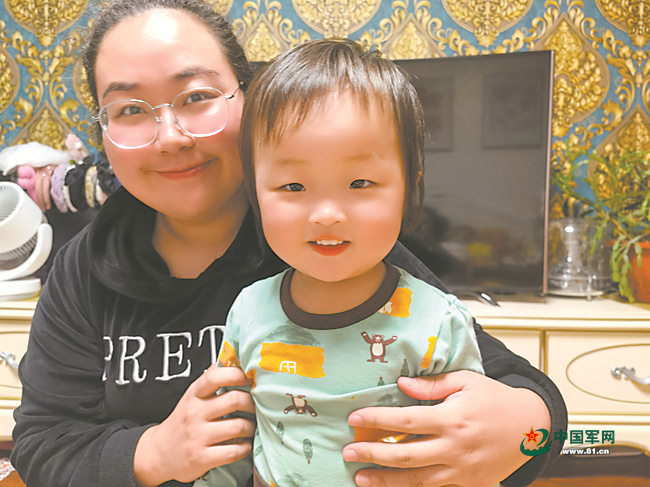
Charlie and the child: Being a model. Sun Wenwen photo
(3) don’t miss lectures in a wheelchair.
At the martyr Ding Lei’s home, the martyr’s wife and teacher of Liaodong University, Charlie, told us that in October 2020, when her lover died trying to save a child from drowning, she was pregnant for five months.
On May 21 last year, Charlie’s ankle was accidentally injured. After the operation, she wore a plaster cast and insisted on taking a wheelchair to the classroom to give lectures to the students. The school has set aside a room for her to have a rest after class. "During the day, I sit on the folding recliner at the back of the classroom; In the evening, tutor students at any time, killing two birds with one stone. " Optimistic Charlie joked with a smile.
"During the COVID-19 epidemic last year, Charlie used WeChat video connection during the isolation period to help more than 20 college students with their homework." According to the leader of Liaodong College, Charlie was rated as a model teacher by Dandong City. During the discussion and exchange of studying, propagating and implementing the spirit of the 20th Party Congress in Dandong Veterans Affairs Bureau, relevant leaders introduced that there are 192 families of martyrs like Charlie in the city, and the total number of martyrs’ survivors and descendants is 490, of which more than 78% are role models or models in their posts or industries.
"The government gives preferential treatment, and we can’t slack off."
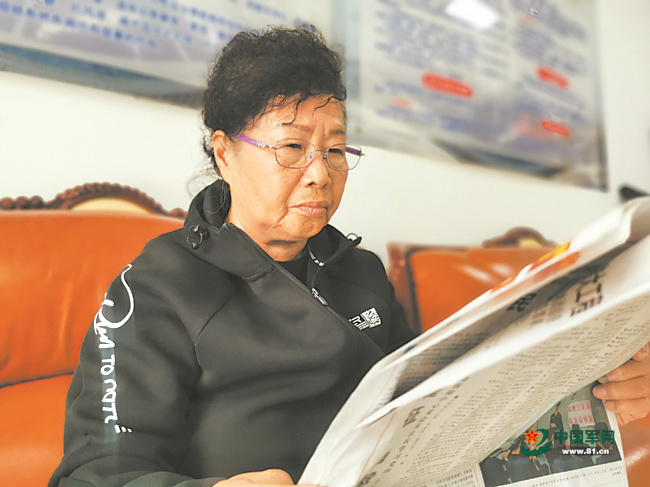
Ma Shuyan: Old and studious. Photo by Cui Peng
(4) the village first built buildings.
Not long ago, when we arrived at Ma Shuyan’s home, the 70-year-old daughter of Ma Honghe, a martyr to resist US aggression and aid Korea, she was feeding, supplying water and cleaning chicken manure with intelligent equipment.
"The temperature and humidity in the henhouse are relatively constant …" Ma Shuyan introduced that this intelligent ecological breeding system for chickens and ducks has reduced the breeding cost through ecological breeding, and the quality of eggs and ducks has also been significantly improved.
As the only daughter of a martyr, Ma Shuyan lived a tight life in her early years and has been living on government preferential payments. After her husband died, she once became a poor household in the village. That year, the town government sent her 200 chickens, which were carefully fed and sold for several thousand yuan at the end of the year. Raising chickens tasted the sweetness. In the second year, Ma Shuyan expanded the scale of breeding and raised 1,600 chickens, earning more than 30,000 yuan at the end of the year.
"The government gives preferential treatment, and our military families can’t slack off." After getting rich, Ma Shuyan first built a two-story building in the village. Driven by her, more than 2,900 villagers in the surrounding villages of the local area made a fortune by raising chickens. Learning to understand the content of rural revitalization in the Party’s Report to the 20th CPC National Congress, Wang Jianxin, commander of Dandong Military Division, said: "To build beautiful countryside, we need more advanced models like Ma Shuyan to lead the way."
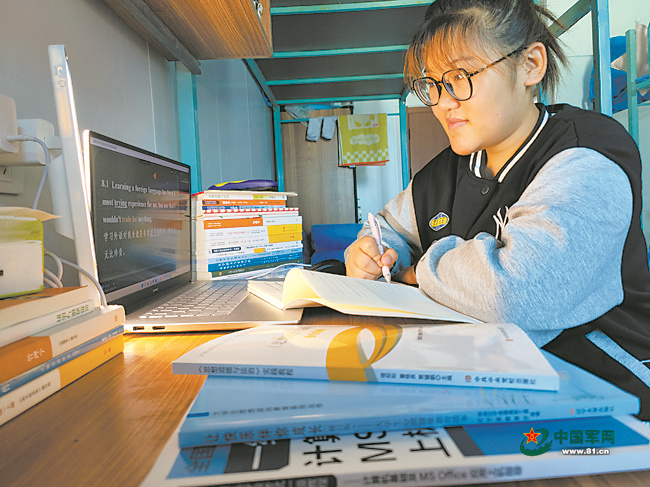
Guan Hongyue: Less and diligent. Jiang Jian
⑤ The elder brother and sister are 19 years old.
"My brother died at the age of 19, and I was admitted to college at the age of 19." Guan Mingyue, a martyr from Li Jiacun in Shalizhai Town, Fengcheng City, said this when his sister Guan Hongyue was full of thoughts for her brother. How happy it would be if father and brother were still here and shared her joy!
This used to be a happy family of four, parents, son and daughter. Sixteen years ago, Guan Mingfu, who served in a certain armed police unit, died in a military exercise. His father couldn’t bear the pain of losing his son and died after being hospitalized intermittently for more than three years.
"Red Crescent is very competitive and strong." Wen Shuyan, the mother of the martyr, proudly introduced, "This year’s college entrance examination was unveiled, and she was admitted to Liaoning University of Finance and Trade."
"Neighbors say that my mother is an iron man, and sometimes she works three jobs alone. Some time ago, the nail of the left thumb was smashed off, and I was not willing to delay a day’s work. " Guan Hongyue said distressfully.
"The government gives us preferential payments, rural subsistence allowances and poverty alleviation subsidies every month, and relatives and friends also help us. The more so, the more we can’t slack off." Wen Shuyan said contentedly, "On the day when Red Crescent received the university admission notice, don’t mention how happy I was, and I felt that it was worth it to be bitter and tired again. The foreign debt has been paid off, and Guan Hongyue’s tuition fees need not be worried. There is no shortage of this in life. What is not enough? "
Nowadays, the two village committees organize to study, publicize and implement the spirit of the 20th Party Congress, and Wen Shuyan’s mother and daughter have become an example for the villagers to pay tribute.
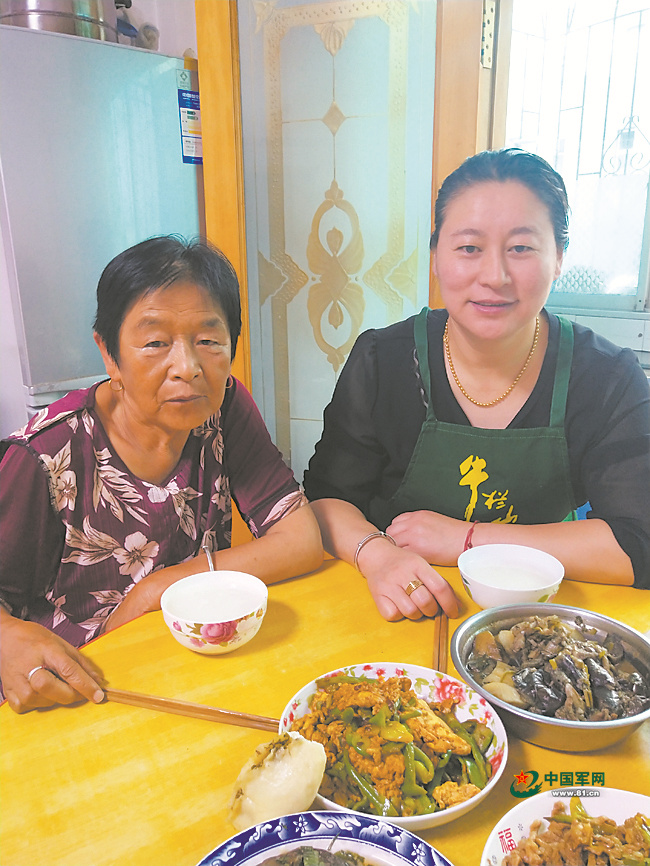
Zhang Lianju and Wang Liyan: Mother and daughter are United. Photo by Chen Wei
⑥ "working girls" return to their hometowns to set up factories.
In Tongyuanbao Town, Fengcheng City, Dandong City, the entrepreneurial experience of the elder sister and younger sister of martyr Wang Liguo has become a wonderful case for the villagers to study, publicize and implement the spirit of the 20th Party Congress.
In the winter of 2011, Changsha City, Hunan Province suffered a freezing disaster. After retiring, Wang Liguo, who worked as a road manager in Changsha Road Squadron of Linchang Expressway Management Office, died in his post. At that time, his mother was sickly, and his sister Wang Liyan and sister Wang Liping faced the problem of re-employment.
"During that time, my mother said every day that the government had given enough preferential treatment to the survivors of our martyrs. We should all stand on our own feet and live a good life with our own hands."
"Our two sisters almost went out to work when my mother pushed and drove them out." Sister Wang Liping said that the two sisters worked in an equipment company. They started from the most basic neck-pulling process of making thermometers, studied hard and practiced hard, and asked if they didn’t understand. In less than two years, they learned the production process of thermometers all over again, and became the famous Aauto Quicker among all employees. In five years, the two sisters grew up step by step from workshop workers, group leaders and administrators, and eventually both grew up to be workshop directors.
In 2019, Wang Liyan and Wang Liping resigned and returned to their hometowns to start businesses, and received financial support from the local government. "The government can think for us, and we must also contribute to the government." After their factory was officially put into production, they recruited local young left-behind women to work flexibly at home. Starting a business and getting rich does not forget to repay the neighbors. When the neighboring villages are flooded, they donate generously. When there was an COVID-19 epidemic in the local area, they offered masks, disinfectant and other materials to the duty card point for epidemic prevention and control.
Now, deeply understanding the Party’s Report to the 20th CPC National Congress’s proposal of "consolidating and expanding the achievements in tackling poverty and enhancing the endogenous development momentum of poverty-stricken areas and people", "working girls" returning to their hometowns to set up factories has once again become a hot topic for local cadres and people.
"Society gives care, and we convey warmth."

Wang Xue: a pioneer in fighting epidemic. Gao Binshuo
⑦ Two heavy honors
Walking into the home of martyr Hu Yulong, the newly renovated house is spacious, clean, bright and tidy, which makes people shine at the moment. Wang Xue, Hu Yulong’s wife, said with regret: "In August 2020, Hu Yulong came back from the army to visit relatives. He just finished decorating his house and died in the flood before he could live."
The husband is a hero, and the wife is not behind. When the COVID-19 epidemic spread in Dandong City, Wang Xue was the first to submit an application letter to the First Hospital of Dandong City. After 77 days of continuous fighting in the anti-epidemic isolation area, she lost more than 8 kilograms.
Prior to this, Wang Xue suppressed the pain of losing her husband in her heart, and compiled more than 290,000 words of "Clinical Notes for Nurses" in one year. People in the industry read it and praised it again and again. "This notebook details the nursing details of common cases in detail and can be called a model teaching material for nursing cases."
"After Hu Yulong’s sacrifice, all walks of life offered love in different ways, which made our whole family feel warm." Wang Xue said emotionally, "The society gives care, and I should pass on this warmth."
Studying, propagating and implementing the spirit of the 20th Party Congress, many people were shocked by these two heavy honors. During the two years of Hu Yulong’s sacrifice, Wang Xue won the honor twice with wisdom and sweat: last year, she was awarded the title of "March 8th Red Flag Bearer" in Dandong, and this year, she was awarded the honor list of "the most beautiful retrograde person" in Dandong.
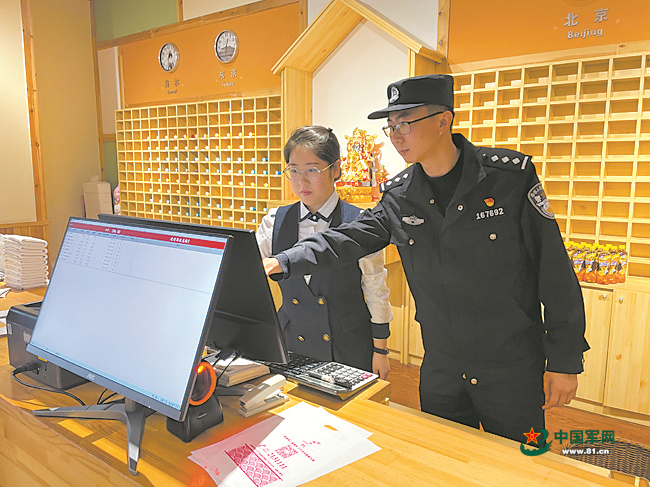
Sun Ganye: Dedication and love of posts. Photo by Cui Peng
The pride of two generations of soldiers.
When I visited the home of Sun Jiping, a martyr of the Armed Police, I just caught up with the leaders of Dandong Public Security Department to present the honorary certificate of "Love Police Mother" to Sun Jiping’s lover Wang Guirong.
Touching the honorary certificate of "Police-loving Mother" just awarded by the Ministry of Public Security and the All-China Women’s Federation, Wang Guirong was excited. Twenty-seven years ago, she took care of her parents-in-law who had been ill in bed for ten years, and was commended as "the most beautiful and good military wife" by the Armed Police Force.
Wang Guirong recalled that Sun Jiping was an instructor of the Dandong Frontier Detachment of the Armed Police, and his son Sun Ganye was only five years old when he died saving people in the winter of 1995.
"I lost my dependence at home and felt that the sky had collapsed!" Wang Guirong said, "During that time, from the army to the place, I don’t know how many good people helped us both."
Wang Guirong, who was "helped" by love, cheered up again. After getting up at 4 o’clock every morning, he rode his bike to send his son Sun Ganye to school before going to work. For 13 years, rain or shine. After graduating from high school, Sun Ganye signed up and became a glorious armed police soldier. Later, Sun Ganye lived up to expectations and was admitted to the Xinjiang Urumqi Frontier Command College of the Armed Police. As soon as he graduated, he took the initiative to apply for service in the front-line frontier troops where his father worked before his death, and he did a good job in everything. When he was the chief officer of the detachment, his unit won the "National Demonstration Unit for Law Enforcement of Public Security Organs" and also won the collective first class merit.
Wang Guirong’s unremitting self-improvement has become the pride of the two generations of soldiers, and has also become an advanced model of "carrying forward Chinese traditional virtues" put forward by Report to the 20th CPC National Congress.
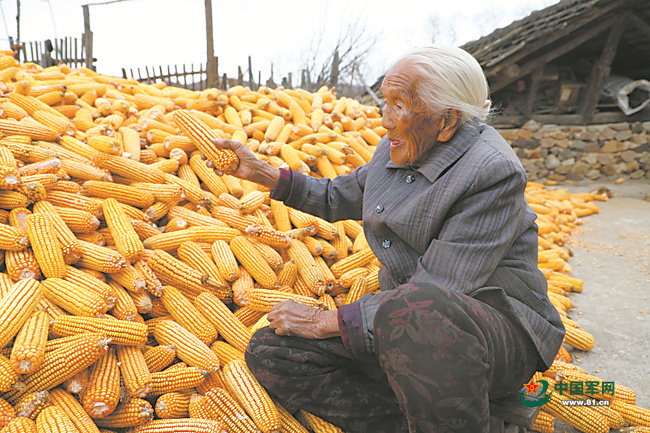
Wang Guiqin: People’s livelihood is diligent. Photo by Zhang Shaofeng
Pet-name ruby 72 years of gratitude uninterrupted line.
When I arrived at the home of Ji Guishan, a martyr who resisted US aggression and aided Korea in Yang Jiacun, Liujiahe Town, Fengcheng City, the scene in front of me made my eyes hot: Wang Guiqin, a 91-year-old widow with white hair, was sitting in the yard peeling corn.
"Grandma Wang is the best person in the world!" Village accountant Dan Dan said, "I have heard from my grandfather since I was a child that there are almost no people in thousands of families in the village that Grandma Wang has not helped."
The old man quickly grabbed the conversation: "When my family’s mouth (Ji Guishan) died, I was less than 20 years old, and the child I was pregnant with was only 4 months old. If the villagers didn’t help me move out of the ravine and help build a house, I don’t know if I could live to this day!" Since then, for 72 years, Wang Guiqin has been "repaying kindness", and which mother-in-law and daughter-in-law are in conflict, she takes the initiative to help mediate; Whose child plays truant, she helps to get back to class; When the rain fell on the farmland, she picked up a shovel and took the rain to help drain it. Whose livestock was lost, she helped to find it overnight; Which family is short of rice and salt, she takes it from her own family … Just for these ordinary people’s ordinary things, in the 1970s and 1980s, Wang Guiqin was praised as "Dandong Moral Model" three times before and after.
Today, Wang Guiqin is old and agile, and she still refuses to be idle. She has become the "grandmother" of more than 30 left-behind children in the village, helping village cadres to cook and deliver food for left-behind children. At the end of 2021, at the age of 90, she was commended by Fengcheng as "a good man in Fengcheng".
From the old man Wang Guiqin, more soldiers and civilians truly understand the practical significance of "carrying out the project of citizen’s moral construction and carrying forward Chinese traditional virtues" put forward by the Party’s Report to the 20th CPC National Congress.
Walk into the martyr’s home
■ Xu Jun, Dandong Military Division, Liaoning Province
On November 4th, Aunt Lin, a martyr’s family member whose house collapsed and proof materials were lost due to typhoon in Gekeng Town, Dehua County, Fujian Province, successfully applied for the "three genera" preferential card with the help of the county and town veterans service centers.
On November 7th, Wang Yu and Li Na, collectors of anti-Japanese war cultural relics in Shenyang, Liaoning Province, made public their wish with the help of the news media: to find "relatives" for more than 500 special cards for martyrs and send them home.
Reading the news of "One South and One North" can’t help but make people feel warm.
From caring for the martyr’s family, to the real experience of the martyr’s family’s devotion, I always think of the theme song "Meeting is a Song" of a popular military TV series a few years ago: "You once told me that meeting is a song, eyes are the sea of spring, and youth is the green river; Meeting is a song, the peers are you and me, and the heart is the young sun … "
Yes, eyes are the sea of spring. Walking into the martyrs’ homes and facing the martyrs face to face, you can always find those stories that have moved people for a long time with the eyes of "discovering beauty". In the face of interest choice, their profound understanding of righteousness is like a primrose, which makes us feel the warmth of the party and government and the civilization and progress of the times. A few years ago, 47 "glorious homes" in Xiangcheng County, Henan Province, after reaching the standard of getting rid of poverty and getting rich, took the initiative to apply for withdrawing from the subsistence allowance, so that the "life-saving money" could help the people who were in urgent need. In recent years, a large number of martyrs’ families, retired soldiers and key special care recipients in Liaoning Province have taken the initiative to apply to be river chiefs, forest chiefs, road chiefs and field chiefs, actively making suggestions and contributing wisdom and strength to rural revitalization. An army leader said that every visit to express condolences and listening to the hearts of martyrs is a purification of emotions and souls.
Yes, youth is a green river. Walking into the martyr’s home, we were shocked again and again. Most of the relatives of the martyrs are in their youth, but they have sacrificed their flesh and blood for the motherland and the people. Regardless of the war years or the peace construction period, soldiers will face sacrifices. The difference is that the former often makes the same contribution as a mountain with heroic feats in an instant; The latter often pays his life bit by bit, spreading the mountain-like credit very flat and far. In the new era of Socialism with Chinese characteristics, we are far away from the war, but soldiers often still face sacrifices: earthquake relief, soldiers straightened their unyielding backbone; The soldiers built a safe dam to fight floods and rescue. A local leader said that every visit to express condolences and reliving the heroic feats of martyrs is a correction of values and a correction of outlook on life.
Yes, it’s you and me. Walking into the martyrs’ homes, we feel more strongly that for the sake of the motherland and the people, not only soldiers can see it at ordinary times, stand out at critical moments and get out at critical moments, but even their parents, wives and even underage children often have to bear sacrifices. The martyrs who died are respectable, and the living martyrs can learn from them. Building a new era in Socialism with Chinese characteristics calls for our concerted efforts. At present, the whole country is studying, propagating and implementing the spirit of the 20th National Congress of the Communist Party of China. In many places, military and local leaders have reached a consensus that they should pay more visits to the glorious homes in the future, because every visit is an effective improvement in the quality and efficiency of the work of "double support" and a practical improvement in the unity of the military, the government and the people.
